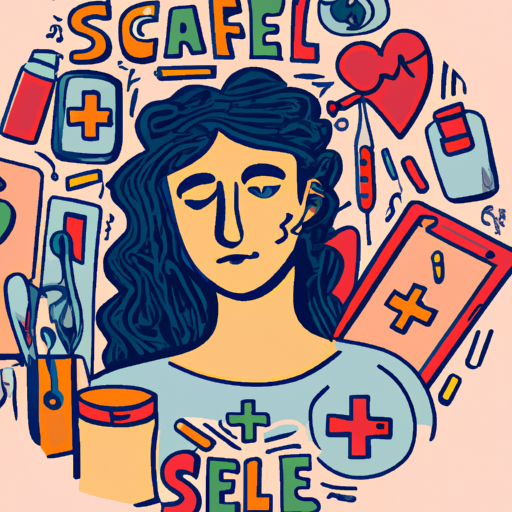Urethritis, a common condition affecting women, is often overlooked or misunderstood. It can cause discomfort, pain, and even lead to serious complications if left untreated. In this article, we will delve into the causes, symptoms, and diagnosis of urethritis in women. Additionally, we will explore the various treatment options available, including medications and therapies that have proven to be effective. Finally, we will discuss lifestyle modifications and self-care tips that can help prevent and manage urethritis. By understanding this condition and its management, women can take control of their health and find relief from the symptoms of urethritis.
1. Understanding Urethritis in Women: Causes, Symptoms, and Diagnosis
Urethritis is a condition that primarily affects the urethra, the tube that carries urine from the bladder out of the body. While often associated with men, urethritis can also occur in women, although it is less common. In this section, we will delve into the causes, symptoms, and diagnosis of urethritis in women.
Causes:
Urethritis in women can be caused by various factors. The most common cause is a bacterial infection, typically from bacteria such as Escherichia coli (E. coli), which normally reside in the gastrointestinal tract. Other bacteria that can cause urethritis include Neisseria gonorrhoeae, Chlamydia trachomatis, and Mycoplasma genitalium. Urethritis can also develop as a result of irritation or injury to the urethra, which may occur during sexual intercourse, the use of certain hygiene products, or the insertion of foreign objects.
Symptoms:
The symptoms of urethritis in women can vary, but they often include:
1. Pain or burning sensation during urination
2. Increased frequency of urination
3. Urgency to urinate
4. Blood in the urine
5. Pelvic pain or discomfort
6. Abnormal vaginal discharge
7. Itching or irritation around the urethral opening
It is important to note that some women may experience no symptoms at all, especially in cases of mild urethritis. However, it is crucial to seek medical attention if any symptoms are present or
2. Effective Treatment Options for Urethritis in Women: Exploring Medications and Therapies
Urethritis, an inflammation of the urethra, can cause discomfort and pain for women. Fortunately, there are several effective treatment options available to alleviate symptoms and promote healing. In this section, we will explore the various medications and therapies commonly used to treat urethritis in women.
1. Antibiotics: Antibiotics are the primary treatment for urethritis caused by bacterial infections. The specific antibiotic prescribed will depend on the type of bacteria causing the infection. Commonly prescribed antibiotics include azithromycin, doxycycline, and ceftriaxone. It is important to complete the full course of antibiotics as prescribed by the healthcare provider to ensure the infection is completely eradicated.
2. Anti-inflammatory Medications: Nonsteroidal anti-inflammatory drugs (NSAIDs) can be beneficial in reducing pain, inflammation, and discomfort associated with urethritis. Medications like ibuprofen or naproxen can help relieve symptoms and improve overall well-being during the healing process.
3. Topical Medications: In some cases, healthcare providers may recommend applying topical medications directly to the urethra to provide relief and promote healing. These medications may contain anesthetics or anti-inflammatory agents to alleviate pain and inflammation.
4. Hygiene Practices: Proper hygiene plays an essential role in managing urethritis and preventing further complications. Women are advised to maintain clean and dry genital areas, avoid irritating soaps and products, and wear cotton underwear to allow for better air circulation. These practices can help reduce irritation and promote healing
3. Preventing and Managing Urethritis: Lifestyle Modifications and Self-care Tips for Women
Preventing and Managing Urethritis: Lifestyle Modifications and Self-care Tips for Women
Urethritis is a common condition that can cause discomfort and pain for women. While seeking medical help is essential for an accurate diagnosis and appropriate treatment, there are several lifestyle modifications and self-care tips that can help prevent and manage urethritis. By incorporating these practices into your daily routine, you can reduce the risk of developing urethritis and alleviate its symptoms.
1. Practice good hygiene: Maintaining proper hygiene is crucial in preventing urethritis. It is essential to clean the genital area regularly, especially before and after sexual intercourse. Use mild, unscented soaps and warm water to avoid irritation and infection. Remember to wipe from front to back after using the toilet to prevent harmful bacteria from spreading to the urethra.
2. Stay hydrated: Drinking an adequate amount of water is crucial for maintaining a healthy urinary system. Water helps flush out bacteria and toxins from the body, reducing the risk of urinary tract infections (UTIs) that can lead to urethritis. Aim to drink at least eight glasses of water per day, and avoid excessive consumption of caffeine and alcohol, as they can irritate the bladder and urethra.
3. Urinate frequently: Holding urine for extended periods of time can increase the risk of developing urethritis. When you feel the urge to urinate, make sure to empty your bladder promptly. By doing so, you can prevent the growth of bacteria and reduce the likelihood of urinary tract infections.
4.

